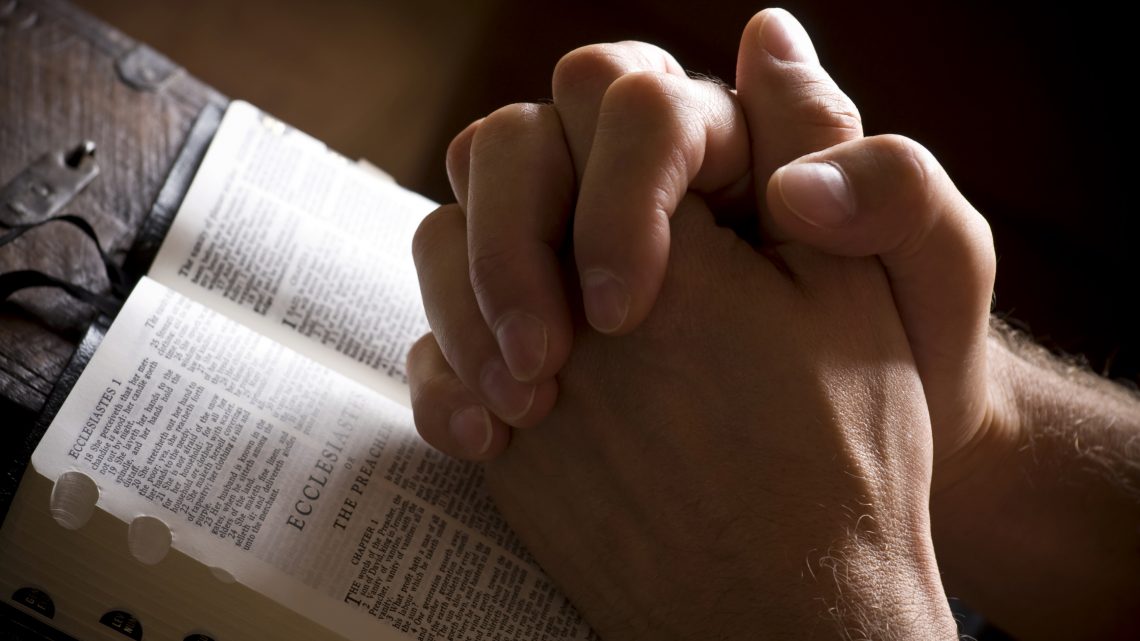Devotion: noun
Merriam-Webster defines devotion as, “a feeling of strong love or loyalty: the quality of being devoted.”
In modern Christian vernacular, the term seems to mean a 10 minute, page-long read incased in a book, or in a phone app. Ten minutes in the morning or the evening to read scripture and rush through a short prayer. According to the dictionary, though, devotion is not a verb. It isn’t something you do. It’s a noun. It’s something that you are.
Six days a week
We are supposed to worship God on Saturday, right? Worship God on Saturday, the Sabbath, and read or do some sort of devotion the other six days of the week, this is what we’re tasked to do. This is a popular idea perpetuated by a culture that gift wraps devotions, and sticks them in book stores by the hundreds. We need only to flip to the correct date, and read a devotional thought, along with the droves of other people who bought the book, and read the same thing.
It’s not just devotion books. It’s Bible reading plans, and online guides. It’s a page of reading, and a hasty prayer. For six days, these things keep us going, until we get to the Sabbath. Then we get down to the real worship.
Biblical Devotion
The examples that stand out to me from scripture aren’t of people being devoted to God. Rather, they had a Godly devotion, a Godly loyalty.
As a girl my favorite “Bible character” was Ruth. We lived in Collegedale, Tennessee where there was no shortage of Bible action figures at the local ABC. My favorite was a Barbie-like doll with a plastic bunch of grain. With it I could act out the story of Ruth and and Boaz, meeting in the grain field (Ruth 2). This was my favorite part of Ruth’s story as a girl. She is a Bible character with a “happily ever after”!
Actually, Ruth’s story is pretty cool before she meets Boaz. When Ruth and her sister-in-law, and mother-in-law lost their husbands. When Naomi sends Ruth and her sister-in-law away, back to their own homeland and families, Ruth refuses to go, saying her famous lines from Ruth 1: 16-17.
“Entreat me not to leave you,
Or to turn back from following after you;
For wherever you go, I will go;
And wherever you lodge, I will lodge;
Your people shall be my people,
And your God, my God.
17 Where you die, I will die,
And there will I be buried.
The Lord do so to me, and more also,
If anything but death parts you and me.”
The culture required a woman to leave her family and cling unto her husband’s family, which is how Ruth ended up in Moab. When a woman was widowed, though, she was able to return to her homeland and her own family. This is why Naomi sent her daughters-in-law away. It wasn’t that she didn’t love them, but it was the custom. And though Ruth’s sister-in-law obeyed and left Naomi, Ruth stayed. She stayed because she was devoted to Naomi. She was loyal to her marital vow that connected her with Naomi. She put her connection with Naomi above cultural values, and above her own family.
She was devoted to Naomi. She followed her, stayed where she stayed, claimed her people, honored her God, and planned to do so until their death. It’s as if Ruth was Naomi’s own. The bond is more than love, more than friendship. She was devoted to Naomi.
Biblical Devotion in Our Lives
How do we be devotion? How can we express devotion to God, other than doing a devotion?
- Go where He goes. God is everywhere, and unrestrained by time and space. He may be always around us, but we have to strive to be near him. If we Go where we know we will find Him, it will be easier to stay devoted to him.
- Stay where He stays. Oftentimes we may attend a religious event or conference where we have a spiritual experience. We may be on fire for Jesus and ready to work for God when we leave that place, but the fire soon burns out when we return home. We need to strive to stay in His presence once we find Him.
- Let His people be your people. God has people. They’re everywhere, in churches, in schools, in the community, and workplace. You can find them if you are following Him, and staying near to Him. When you decide to live for God you essentially marry His family. You can build relationships with His people, and help each other grow in His Word.
- Let His God be your God. It may seem odd for me to say this, but we all have ‘gods’. They are things we place with importance. They are things we have, things we want, things we do. They are beliefs and values we hold dear. We all have these ideals. We have habits and intentions and we want them to align with what God upholds as right and good.
- Live and die with God. God wants to have our life. That doesn’t mean the best part of our life, or even the longest part of our life. God wants to have our whole life. God has no intention of sharing us. He cannot share us with darkness. He cannot share us with sin. God needs all of us until the day we die. That is not too much to ask if we are devoted to Him. Do we not say “’till death do us part” when we marry? Perhaps our flippant attitude toward marriage and divorce is because we no longer know what it means to have devotion, to be devoted.
Once you are devoted to God, you will remain devoted to Him if only you continue to draw near to Him. We cannot be complacent in any relationship on earth. Why would we expect anything different with a heavenly one? If I were to only spend 10 minutes of time with my husband each day it would take less than a week for our relationship to become strained. I want to stay devoted to him, so I wake up every morning devoted to Him. I ask God’s help in keeping me devoted to my husband, and I ask my husband’s help in keeping me devoted to God (See how God’s people can help in this devotion process?).










